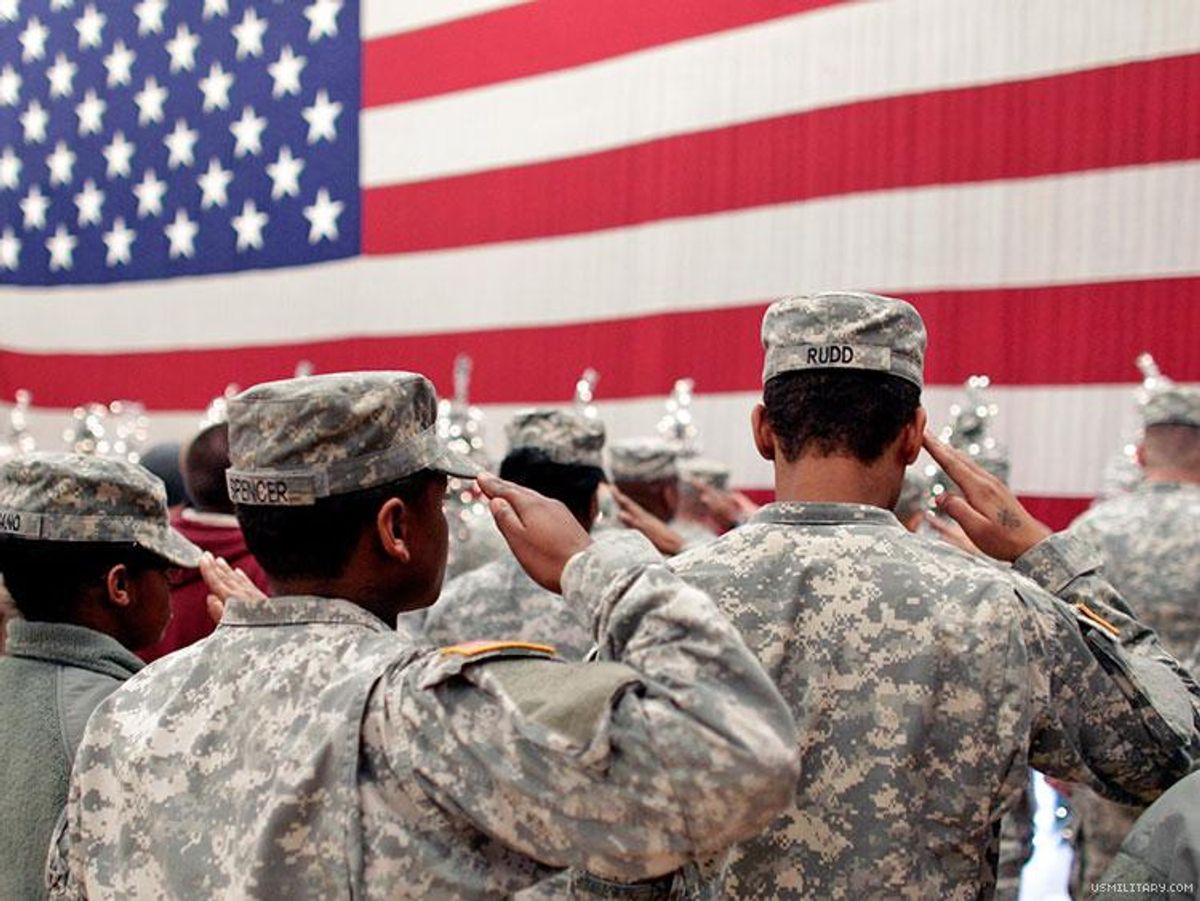Two decades ago in New York City, I badly needed a sponsor for a 12-step program. It wasn't a difficult decision. I chose an unassuming trans woman who was also an activist, and ordained too. We made a great combination. Ellen (not her real name) had a lovely, even, reflective disposition, which made her a perfect foil for my more dramatic, tormented, urban Sturm und Drang trans woman.
It turned out she was also in the military. As I got to know her better, I learned more. She was en femme whenever I saw her, and in fact seemed to grow in her femininity over time.
But in the military she was still mainly doing boy. She had to. If they'd found out, that would have ended her career. She knew some of her regiment knew and her commanding officer, and others surely suspected. But she had to keep it all on the down low.
When I asked why her activism didn't extend to the military, she told me she couldn't afford to. The military had an extremely harsh rule about retirement. If you put in your 20 years, you got a full pension. If you left one day early, you got ... nothing. And she simply couldn't afford to put that at risk.
This seemed severe and unforgiving, and perhaps intentionally so. As you served longer you had so much more at stake, and so much more to lose. So even as you advanced in time and rank, you theoretically had more power and privilege over others, but over your own fate as you got closer to retirement the leverage shifted more and more to the armed forces.
This was in spite of the fact that Ellen held a very high rank. I won't divulge it here, but one day she confided that she thought she was the highest-ranking transgender officer in the military -- certainly the highest-ranking she knew or had heard of.
And there were quite a few. I knew because I'd met them in transgender meetings and organizing groups. Some served quietly, like her. Others had gone in for branches known for their macho approach, like the Marines or special forces. Some were heterosexual cross-dressers, who indulged in an innocuous private gender-expansive behavior, but one that would result in their automatic dismissal with prejudice if they were ever discovered. Others yearned to start their transition, but knew they couldn't. Some had already started hormones and were trying to hide breast development.
I asked her why there was a prevalence of trans people serving quietly, closeted, in the military. She pointed out how, for many trans women, joining the military was a last-ditch effort to extinguish feminine feelings they had been unable to subvert on their own. It never worked.
Later Ellen talked, without the bitterness I would have felt, of how the national gay military rights group fighting for LGB service members refused to acknowledge transgender issues. So people like her were abandoned and ghettoized again, even by those who should have been helping their cause.
As so often happened, gay rights were front and center, but trans was considered a bridge too far, at worst a distraction.
We talked so many times about how long it would be before people like her could finally serve openly and proudly.
Well, that was 1995. It's taken 21 years, but here's to you, Ellen. Your generation led the way. It's finally the law of the land. We can all now get dressed up and parade around, and this time without being afraid of losing our retirements or livelihoods or honor.
The Pentagon itself has finally acknowledged that changing your gender marker is not a threat to good unit order and cohesion. This is not, as some on the right would have it, political correctness run amok. Nor is it just, as some on the left would have it, a victory for minority rights.
What is really taking place before our eyes is a deep shift in both the government's and the general public's understanding of transgender.
There was never any colorable argument that a few hundred service members, out of the millions in uniform, who might sometimes wear feminine clothes privately or even decide to affirm their genders, constituted any kind of a threat to the military.
What there was, was a deep aversion to transgender and a widespread understanding of it as a psychiatric disorder. And these combined to make such arguments widely acceptable.
Remember this was a time when newly elected President Bill Clinton's open support of "gays in the military" was met with Sen. Sam Nunn, a close friend of the Pentagon and a lifelong Democrat, touring the tight sleeping quarters of a nuclear submarine while on national television, so he could ask sailors how they would feel bunking next to a ho-mo-seck-choo-all ... a term that, in his mouth, seem to have about 10 syllables, all of which rhymed with either "pervert" or "felony."
But what we are witnessing is the transformation of transgender from a disorder into a civil right, and the desire to align one's body and gender as something more akin to a straightforward medical condition instead of evidence of some dark, deep-seated, underlying pathology.
We are becoming normal. We are serving, We are at last able to do it openly. And yes, we are proud.
RIKI WILCHINS's upcoming book is titled Burn Down the Binary.


















































































